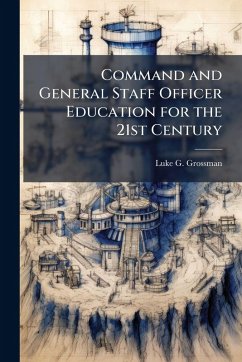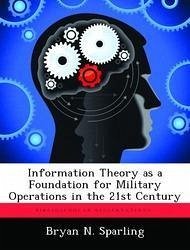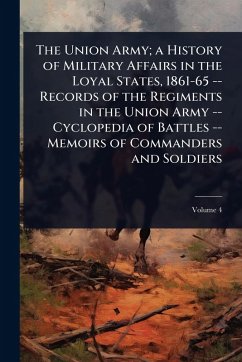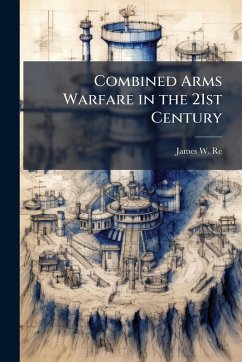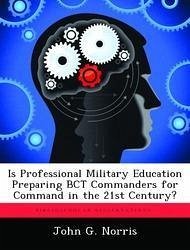
Is Professional Military Education Preparing BCT Commanders for Command in the 21st Century?
Versandkostenfrei!
Versandfertig in über 4 Wochen
14,99 €
inkl. MwSt.

PAYBACK Punkte
7 °P sammeln!
The Army of the 21st century has experienced a change in the nature of war with the asymmetric global war on terrorism. No longer is the Army facing the conventional armies of the past but is now facing an asymmetrical force which is causing the Army to change the tactical organizations and the way they fight. The Army is undergoing a major transformation process using modularization to Brigade Combat Teams (BCT) as the major maneuver element. The BCT enabled and organized with all of the elements previously found in the divisional organization created an organization with enormous capability ...
The Army of the 21st century has experienced a change in the nature of war with the asymmetric global war on terrorism. No longer is the Army facing the conventional armies of the past but is now facing an asymmetrical force which is causing the Army to change the tactical organizations and the way they fight. The Army is undergoing a major transformation process using modularization to Brigade Combat Teams (BCT) as the major maneuver element. The BCT enabled and organized with all of the elements previously found in the divisional organization created an organization with enormous capability while simultaneously creating new strategic leader requirements. The increased intellectual skills and abilities as a result of this organizational change must be addressed in Professional Military Education (PME) in order to prepare BCT commanders for the 21st century. Determining if PME is preparing BCT commanders for the 21st century requires an understanding of how the nature of warfare has changed and an understanding of the increased strategic role of the BCT and the strategic competencies required. Strategic competencies once defined, must be compared against the current PME available prior to BCT command. PME available to BCT commanders prior to BCT command is limited to Senior Service College (SSC) and attendance to the Pre-Command Course (PCC). Comparison and analysis of the strategic competencies to the curriculum provided in the US Army War College (AWC) and at the Pre-Command Course (PCC) will provide the necessary assessment to determine how PME is supporting BCT commanders. Institutionally, PME recognized the changing nature of war, the increased strategic role and competencies resulting from the modularized BCT and is providing instruction to support the new requirements of the BCT commanders. Although PME is addressing the strategic competencies, the increased mission requirements on the force and senior leaders is taking priority over professional military ed This work has been selected by scholars as being culturally important, and is part of the knowledge base of civilization as we know it. This work was reproduced from the original artifact, and remains as true to the original work as possible. Therefore, you will see the original copyright references, library stamps (as most of these works have been housed in our most important libraries around the world), and other notations in the work. This work is in the public domain in the United States of America, and possibly other nations. Within the United States, you may freely copy and distribute this work, as no entity (individual or corporate) has a copyright on the body of the work. As a reproduction of a historical artifact, this work may contain missing or blurred pages, poor pictures, errant marks, etc. Scholars believe, and we concur, that this work is important enough to be preserved, reproduced, and made generally available to the public. We appreciate your support of the preservation process, and thank you for being an important part of keeping this knowledge alive and relevant.



